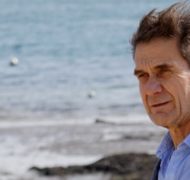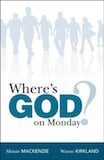Midlife Identity Development
Book / Produced by Individual TOW Project member
Adolescence is not the only time in our lives when identity development and the search for SoulPurpose come to the fore. It also occurs at other stages, especially midlife.
The period of midlife can be any number of years and is usually located any time between the ages of 35 and 60. It’s a staging post – kind of like a half-time in the game of life (as Bob Buford puts it). This growing awareness of being half-way along life’s journey evokes different responses in different people. Lillian Helman the American Playwright wrote, “If you’ve invested yourself in life, you’re pretty certain to get a return. If you are inwardly a serious person, in the middle years it will pay off”.
That may be so, but how many of us actually feel more like Dante (the 14th century poet) who wrote “Midway in life’s journey I was made aware that I had strayed into a dark forest, and the right path appeared not anywhere”? This transition can be a perplexing and disorienting time.
Midlife has received huge press over recent years. Unfortunately much of it has been rather sensational, focusing on “midlife crises” – like the businessman who runs off with his secretary and the company money, leaving his wife who “just doesn’t understand me”.
Most midlife experiences are nothing like so dramatic. A better term for describing the more predictable experiences at this time may actually be midlife consciousness. This is an important and valuable time of re-assessment, a time for taking stock of where we are going in life. Is our direction of the last two or three decades really where we want to go?
The questions midlife often raises are quite different from those of earlier years. By 40 most of us have experienced a number of successes and satisfactions … as well as our share of dashed dreams and failed expectations. This mixture of joys and disappointments combines with the growing realisation that our years are limited. This is the context in which we find ourselves pushed to re-assess what our life is all about.
Depending on how much we perceive we have achieved, this can be a threatening experience. There will be feelings of grief where dreams have not been attained, or somehow lost along the way. There will be a sense of waking up to the realisation that some of the dreams we held were never our own but were pressed upon us by others (as well as the relief of finally letting these go). There may also be anger at wasted or lost opportunities.
Men in particular often experience a shift from their earlier dreams of “success” to re-adjusted dreams of “significance”, often involving a new clarity on what are the important values to live for. Words such as relationships, legacy, contribution begin to figure more prominently in their vocabulary, and achievements, goals, success somewhat less.
Many of the people who participate in life-planning courses are working through their midlife consciousness. Often earlier career choices were shaped by influences other than meaning-of-life factors – things like money, family expectations (or a reaction against these), location, etc. Now, at midlife, work acquires new meanings. Am I making a worthwhile contribution (to my family, to society, to God’s work)? How much time do I have left to achieve the things I want to achieve?
Erik Erikson calls the crisis of this time a struggle between “generativity and stagnation”. Generativity is the sense that one is making a worthwhile contribution to those who follow – whether expressed in parenting younger generations, or through employment or voluntary community work. Stagnation is the sense of sliding into retirement, of unwillingness to keep growing and learning– and is similar to what others call “inner death”.
Midlife may have a number of different implications for women. For those who have been raising children it means a time of taking stock of their life as their family becomes independent. Many of these women return to employment with a vigour more reminiscent of young men in their twenties.
For those women who have delayed child bearing and rearing, the approach of midlife signals a time of making a decision that will no longer wait. Other women who have remained single out of circumstances or choice also face the end of their child-bearing years, and may need to grieve this lost opportunity. Similarly, for an increasing number of women who have left childbearing until later, infertility takes a toll. The work that once claimed their time may now lose its attraction. For the previously contented career woman, midlife may signal a change to a more “meaningful” occupation – this perception will be defined in different ways of course. Some women who have spent two decades establishing themselves at work may now long for time with their families. Their career isn’t working for them anymore.
Frequently for men the frenzied approach of their early work years can no longer be sustained at midlife. Energy levels drop and there is usually a growing sense of one’s own mortality. Many men become aware of the sacrifice they have made in terms of their time with their family in order to pursue work goals. This causes them to rethink the whole work question. For some the financial security they have established during their early work years, or a sudden redundancy settlement (or second, or third redundancy…), means they can now afford to consider other occupations that previously were not so realistic. Others find that their paid employment does not offer them any chance to make a meaningful contribution. For these men, family, voluntary work and/or leisure-time occupations may become the way they can express generativity.
In marriages a subtle reversal may occur in the focus of each gender. The man may become more aware of the importance of relationships, even if it is the golf gang, while the woman suddenly has a drive to achieve more outside of the home. These differences can be heard in the conversations of midlifers. A man may talk of the way his life was task-driven, of the emphasis on individuality – and he may now affirm the importance of community and connecting with others. Meanwhile, the woman may be longing for a little individuality, having been absorbed (and sometimes enmeshed) in relationships for most of her life.
Midlife consciousness need not be all about loss and regret. If anything it is a time of opportunity. It’s about offloading things that are no longer useful, in order that we can continue with the journey without being weighed down. Midlife means an appraisal of all aspects of our lives – work, relationships, physical health and well-being, spiritual growth, and more. The questions midlife raises should bring clarity to the big issues of life – who am I, what am I living for, and where am I heading? It can be a time of creativity as in partnership with God we re-fashion some of those old dreams into more authentic packages. The things of value from what has gone before can now result in renewed wonder, as we move into a new phase of life with a fresh appreciation of how wondrously we have been put together.
A British television documentary series called Seven-Up has traced the lives of a number of individuals from the time they were seven years old, interviewing them at seven-year intervals. In the most recent programme (reflecting on the period between ages 35 and 42) there were some fascinating changes. At 35 a brashness and fearlessness still pervaded some of the participants. By age 42, there was a softening of attitude that almost approached defeat in some and graciousness in others. Even the previously most unlikable personalities seemed to become more likable. The rough edges had been knocked off them, though the knocks of life had in different ways left scars of one kind or another. Midlife consciousness was having its effect!
Perhaps the story of Jacob wrestling with the angel (in Genesis 32) is a helpful picture of midlife consciousness. It can be a time of turmoil, and when it fully engages the traveller you can be sure that there will be some rigorous wrestling done. Almost all of us survive the scuffle, even if we carry with us a limp as a sign of what we endured. Most of all, we walk away with a new identity. Jacob becomes Israel. We too will move to a new and richer level if we allow ourselves to engage in reassessment at the time of midlife. And we too have the potential to walk away with renewed SoulPurpose even if we are not totally unscathed.





